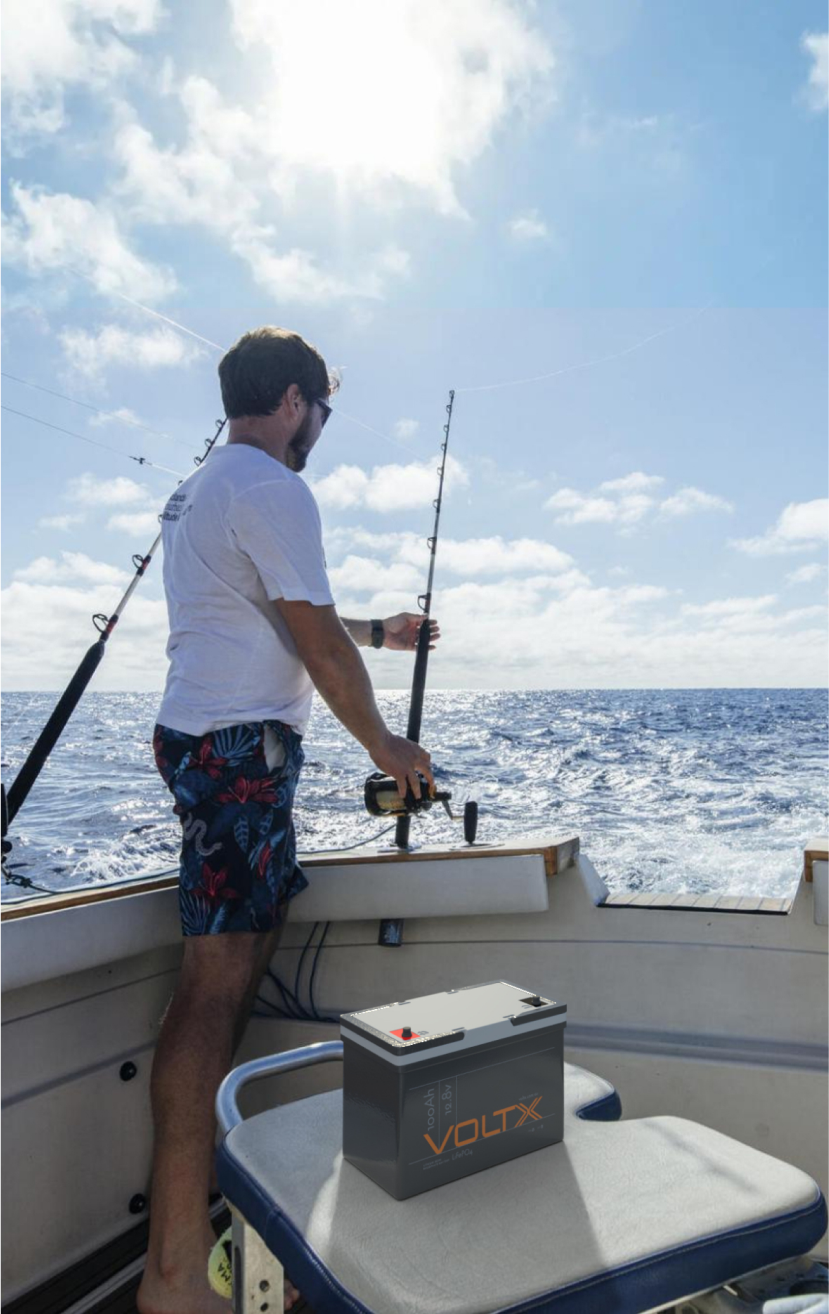UNSURE OF WHERE TO START WHEN LOOKING TO BUY A LITHIUM BATTERY?
Many people believe lithium batteries to be better than alternative battery chemistries. They have established a solid reputation for being the more reliable and energy-efficient battery type throughout time, making them the preferred option for most battery users. These power packs are also frequently utilised in many devices, including commonplace devices like mobile phones and battery backups for sporadic power outages.
BUT WHAT EXACTLY ARE LITHIUM BATTERIES?
Before we answer this question, we need to understand lithium and batteries. Separately.
Well, lithium is a chemical element, pretty much like oxygen or nitrogen.
It is considered a superior metal because of several of its features
- It is lightweight
- It is malleable
- It is highly reactive
And battery? Simply put, a battery is a source of electric power. It has three essential components: the anode (negative - side), the cathode (positive + side), and the electrolyte.
When the cathode and anode are connected to an electrical circuit, a chemical reaction occurs between the anode and electrolyte.
Imagine the anode to be a mischievous person who provokes the electrolyte (a child) to say something nasty to the cathode (another grown-up). As electrons (the nasty thing) flow through the circuit from the anode and reach the cathode, it prompts another chemical reaction.
These reactions keep happening, and the energy these reactions produce is electricity. And then comes the point when nothing meaningful is left to make electricity.
Enter Lithium-ion batteries, which are secondary cells, i.e., they can be recharged and reused. These batteries are prevalent today, mainly because of their applications in mobile, laptop, cameras, etc.
So, the most significant difference between lithium and lithium-ion batteries is that the former can’t be recharged while the latter can be recharged and reused hundreds of times.
SO, WHERE DOES THE LITHIUM IRON PHOSPHATE BATTERY FIT IN?
Like lithium-ion batteries, Lithium Iron Phosphate (LiFePO4) batteries are also rechargeable.
But while a lithium-ion battery has lithium cobalt dioxide (LiCoO2) or lithium manganese oxide (LiMn2O4) as a cathode, a LiFePO4 battery has lithium iron phosphate (LiFePO4) as the cathode material.
Phosphate-based technology possesses superior thermal and chemical stability, which provides better safety characteristics than those of Lithium-ion technology
Lithium phosphate cells are more stable under overcharge or short circuit situations, they can resist high temperatures without disintegrating, and they are overall safer even in the event of improper handling during charge or discharge. The phosphate-based cathode material won't burn and won't be prone to thermal runaway if abuse does happen. Phosphate chemistry also offers a longer cycle life.
In a nutshell, Lithium Iron Phosphate maintain the advantages of lithium-ion batteries while mitigating the risks.

At VoltX, we have a wide range of top-quality LiFePO4 Batteries equipped with Grade-A prismatic cells and an integrated battery management system. VoltX Batteries are designed with efficiency, safety, and versatility in mind, with each power pack geared to provide a seamless performance with every use. Click here to check out our collection.
CHOOSING YOUR LIFEPO4 BATTERY
LiFePO4 batteries have a far longer life than their lead-acid or AGM equivalent. This fact, however, does not justify the lack of research when buying a LiFePO4 battery. There are several factors to consider when shopping for a lithium battery.
BATTERY APPICATION
It is essential to understand your requirements before you invest in a battery. You don't necessarily need the biggest battery available. You can afford a more reliable brand while saving money by opting for a mid-spec battery instead of a high-spec.
VOLTAGE
Mapping your applications with the voltage is an excellent next step. 12V is enough for most applications, including camping and boats. No wonder over 60% of the camping batteries sold in Australia is 12V.
CHARGE RATE
Also known as the C-rate, the charge rate is the unit to measure the speed at which a battery is fully charged/discharged. For example, charging at a C-rate of 1C means the battery is charged from 0-100% in one hour. The faster, the better, but you can weigh the charge rate against the price premium and your applications. Anything that takes more than 2 hours to charge may not be suitable for most people.
SERVICE LIGHT
LiFePO4 batteries don't come cheap, and one of their biggest benefits is the service life. Don't settle for anything less than 1000 charge/discharge cycles. At VoltX, we only sell batteries with a minimum of 2000 charge/discharge cycles.
OPERATING TEMPERATURE RANGE
LiFePO4 batteries can operate in extreme temperatures. Check the battery specifications and determine if the operating range is suitable for your requirements.
WARRANTY
Ensure that a decent warranty covers the LiFePO4 battery you choose. With lithium batteries, a five-year warranty shouldn't be beyond expectations. At VoltX, we have batteries with 3-year to 7-year warranties.








